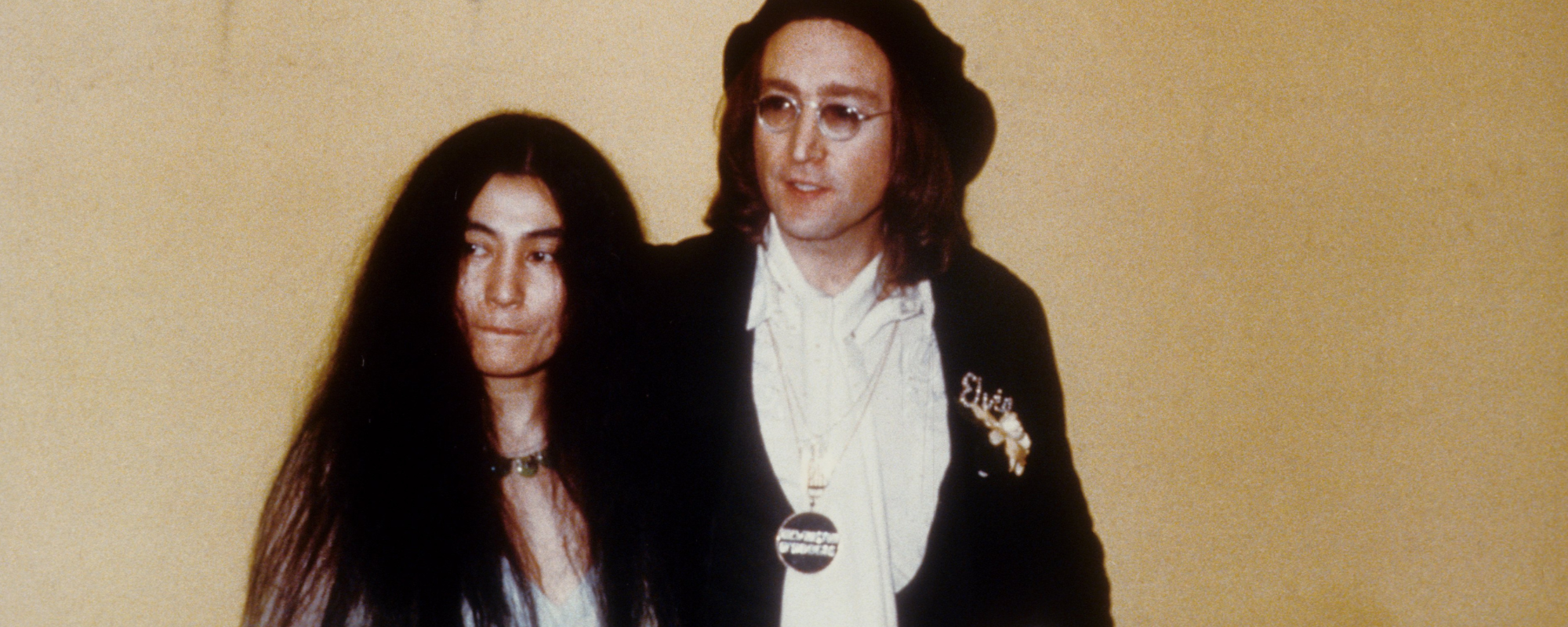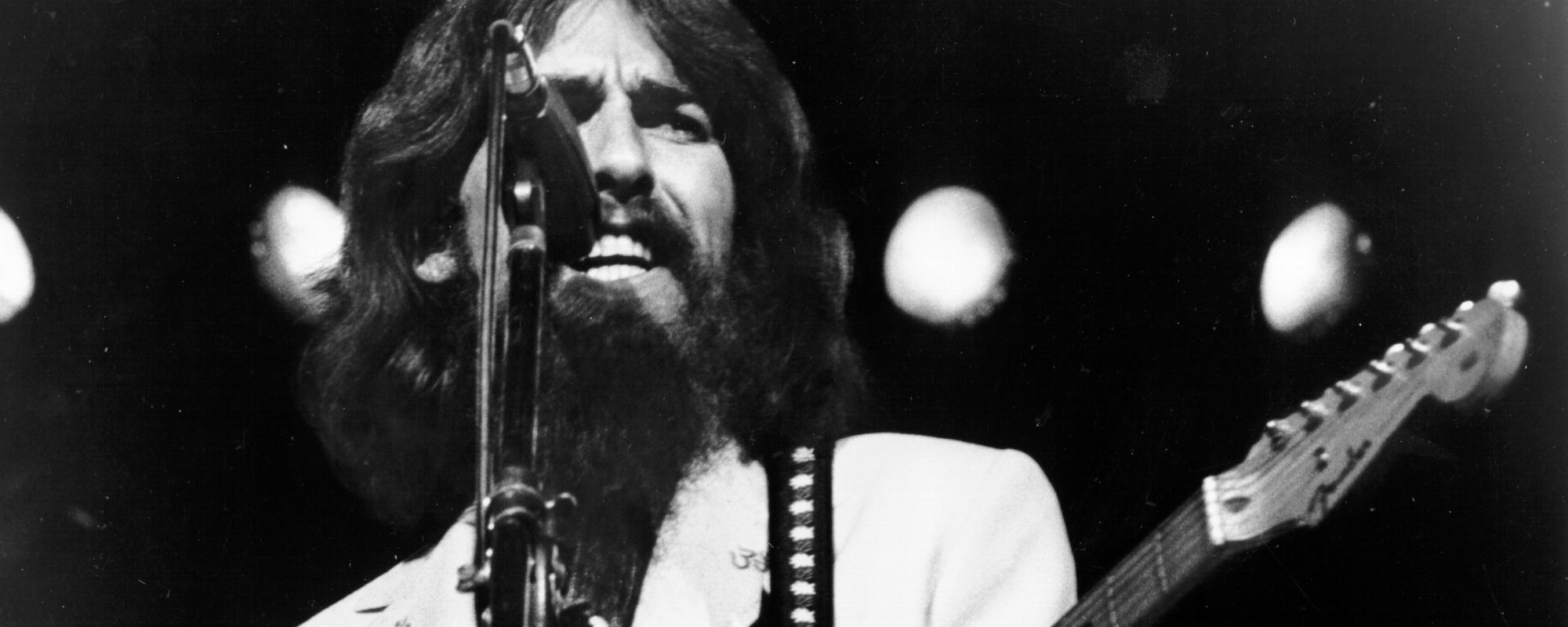Singer/songwriter Colin Hay became world famous when his band Men at Work hit big with their 1981 debut album Business as Usual, which went No. 1 in 6 countries, sold 6 million copies in America, plus 4 million more worldwide. The follow-up from that Australian band, Cargo, went Triple Platinum in America and sold at least another million units globally, which was still very respectable. After their third album Two Hearts was finished being recorded in early 1985, the band had lost three original members and fell apart after their tour. Hay then embarked on a solo career which continues to this day.
Videos by American Songwriter
Quietly Moving Forward
While he has not returned to the Platinum heights he attained with Men at Work, Hay has built up a solid repertoire and a loyal following around the world. He has released 15 solo albums since 2007 and recently toured the U.S. again, first solo and then with Ringo Starr & His All-Starr Band, with whom he has been a member since 2018 (and was previously between 2003 and 2008). A great way to learn about Hay’s career arc is through the 2015 documentary Colin Hay: Waiting For My Real Life.
Although Hay kept moving along quietly as a solo artist following the end of Men at Work, his appearances on the popular 2000s sitcom Scrubs brought both renewed attention from older fans and interest from a new audience.
Getting an Insider Boost from Fans
In a 2022 interview with Stereogum, Hay discussed his path to Scrubs. He had moved to L.A. in 1989 and four or five years later met Chad Fischer, the drummer for School of Fish, the alt-rock band who had a hit with “Three Strange Days” in 1991. Fischer had become a film composer and songwriter, and later played on some Hay recordings. Through the drummer, Hay met singer/songwriter Kerry Brothers, who knew an aspiring actor named Zach Braff. Brothers and Braff then regularly saw Hay perform in the L.A. area.
Around 2001, Hay bumped into Braff at one of Fischer’s parties after the young actor landed his leading role on Scrubs. (Funnily enough, Fischer’s new band Lazlo Bane wrote and recorded “Superman,” the theme song to Scrubs.) Hay congratulated him, and Braff offered to take some of his CDs to the show’s creator to see if perhaps they could get some of the songs on the show. Usually a line like that is hollow, but Braff was good to his word. He bequeathed some of Hay’s solo music to Scrubs creator Bill Lawrence, who according to Fischer, also attended some shows.
“And Bill Lawrence got a little bit annoyed about the fact that he hadn’t heard of me for a while and he liked the music,” Hay told Stereogum. “And he said, ‘Well, why are these songs not on the radio?’ And I said, ‘Well, that’s a very good question.’ And he said, ‘I’m going to use a couple of your songs and try and weave them into a storyline of a couple of episodes and see if I can make a difference for you.’ So that’s what he did. So he wrote an episode called ‘My Overkill,’ which was a very popular episode. And it made a huge difference for my career, in terms of live audiences. It was a great punctuation mark for me. ”
Screen Cred Leads to New Fans
“My Overkill” was the Season 2 premiere episode of Scrubs that first aired in September 2002, and featured Hay performing solo Men at Work’s “Overkill.” The singer’s inclusion was integrated into the opening three-minute sequence which starts when J.D. (Braff) and co-worker Turk (Donald Faison) get coffee outside of work. Hay is sitting on a bench and starts playing the song. Then he follows the duo into the Sacred Heart Hospital. Throughout a montage of scenes, Hay keeps reemerging, usually in a patient’s gown, singing and playing—first in a wheelchair, then on an outside ramp, in a janitor’s closet, as a shock-revived patient, and finally as a temporarily reanimated corpse in the morgue (timed to the lyric ghosts appear then fade away). A few hospital workers notice Hay’s presence too. It’s a surreal and funny sequence that cleverly shone a spotlight on Hay, made him part of the show—and triggered interest in his music.
Hay also appeared in two later Scrubs episodes: “My Hard Labor” (Season 7, Episode 2 in 2007), where Hay emerges during a childbirth fully grown and with a guitar; and “My Finale: Part 2” (Season 8, Episode 19 in 2008), where he quickly cameoed among a line of people saying goodbye to J.D. as he leaves his job. Further, the cast performed a somber musical number (without dancing) at the end of Episode 13 of Season 2 in January 2003. It was entitled “My Philosophy,” and they sung Hay’s “Waiting for My Real Life to Begin” (from his 2001 album Going Somewhere) after the death of a patient. The sequence all took place inside of J.D.’s head as he faced the tragic reality of what just happened. Hay’s music appeared in other episodes too.
Always Be Moving
All of this attention was helpful to the veteran singer/songwriter. He retained old fans from his Men at Work days and gained many new converts who knew him from Scrubs.
“You have to be moving,” Hay said to Stereogum. “It’s like a cliche, really. But you have to be actively working and doing interesting things in order for even people to take any kind of notice. And so that’s what I think what happened with me, is Zach liked some of my songs and he was in a position of power to do something about it.”
“The opportunity to not only put his music on the show, but ultimately even to put him on the show, that I could be even a small part of people saying ‘I found Colin Hay’s solo stuff because of you,’ is the one of the most fun things I’ve done career-wise,” Lawrence noted in the Colin Hay documentary.
Hay still tours regularly, and he revived Men at Work a few years back, albeit it with a new roster, and has done live shows with them. As Hay implied, even if one keeps moving along as an artist, it is great to have influential allies. Braff and Lawrence did Hay a solid, particularly the latter by writing the musician into Scrubs.
“It did make a huge difference and I’m very grateful to him for that,” Hay acknowledged to The Border Mail newspaper in Australia in 2014. “It really increased my audience and it opened up a younger audience too. It wasn’t what I’d call a Men at Work audience. It’s the younger people who come to shows … and not to hear Men at Work songs. Older people don’t go out.”
When you purchase through links on our site, we may earn an affiliate commission.
Photo by SCOTT MOORE/Shutterstock












Leave a Reply
Only members can comment. Become a member. Already a member? Log in.